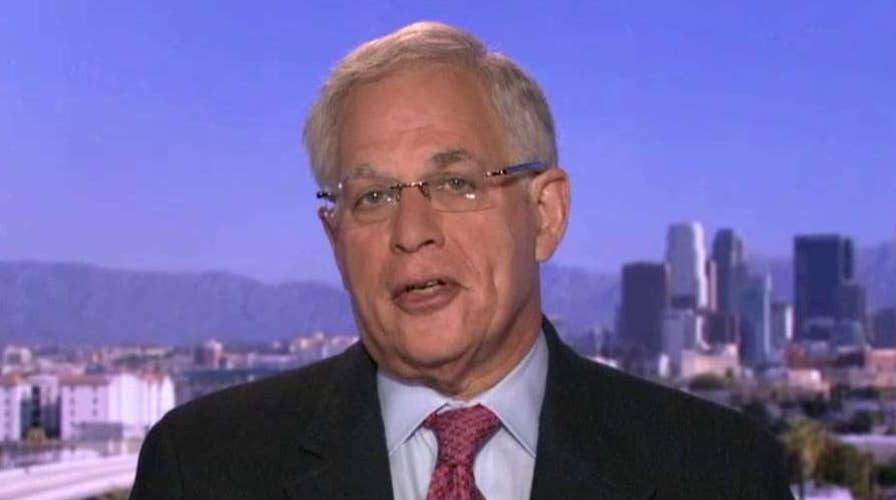Cybersecurity expert talks signs Russia hacked US emails
FBI currently investigating breach of Colin Powell's account and those of DNC members
Some of the top Democrats on the House and Senate intelligence committees said Thursday that they’ve concluded that Russian intelligence agencies are making a “serious” effort to influence the U.S. presidential election.
A joint statement from Sen. Dianne Feinstein and Rep. Adam Schiff point a finger at Russia for the recent hacking of political computer systems, which have targeted Democrats and party-affiliated groups.
Federal officials have been investigating the cyberattacks at the Democratic National Committee and the Democratic Congressional Campaign Committee. Election data systems in at least two states have also been breached.
"Based on briefings we have received, we have concluded that the Russian intelligence agencies are making a serious and concerted effort to influence the U.S. election," the two lawmakers from California said. "At the least, this effort is intended to sow doubt about the security of our election and may well be intended to influence the outcomes of the election. We can see no other rationale for the behavior of the Russians."
Russian president Vladimir Putin has repeatedly denied claims that Moscow was behind any of the security breaches.
“There’s no need to distract the public’s attention from the essence of the problem by raising some minor issues connected with the search for who did it,” Putin told Bloomberg News earlier this month. “But I want to tell you again, I don’t know anything about it, and on a state level Russia has never done this.”
The U.S. hasn't formally blamed Russia for the hack of Democratic emails, but the White House has publicly noted that outside investigators have determined that Russia is to blame. Determining Russia's involvement in the public disclosure of the emails is seen as a prerequisite to any sanctions the U.S. might levy on Russia in response to the hacks.
Earlier this month, Lisa Monaco, President Barack Obama's homeland security adviser, said it would be difficult for someone to hack into America's voting systems in a way that could alter the outcome of an election. She said election systems by and large are not hooked up to the internet and are diffusely operated by state and local governments.
Asked whether the U.S. might respond to the hacking, Monaco said "Stay tuned."
Lawmakers from both parties have called for a U.S. response to the hacking.
"When we have an adversary who so brazenly strikes at the heart of our democratic process, I think that indicates how low they believe the cost of that behavior is going to be," Sen. Deb Fischer, R-Neb., said Thursday at a Senate Armed Services Committee hearing where she questioned top military officials about the recent cyberattacks.
The Associated Press contributed to this report.





